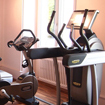Vocabulary Lesson for Adult Learners-November 27,2019.
A2-B1 Mixture level
Description
Materials
Main Aims
-
The intended aim of this lesson is to provide clarification and practice of new verbs and collocations in the context of sleep.
Subsidiary Aims
-
The intented sub aim of this lesson is to provide speaking practice in a conversation in the context of sleep.
Procedure (44-49 minutes)
The lesson starts with a story. T tells: I was having difficulty waking up in the mornings a year ago. Also, I was sleeping late and waking up late in the mornings. I could say that I had a poor quality life. I was effecting my daily life too. I was feeling bad and could not function effectively during my lessons and could not do my studies well. It was like my brain did not work very well. Then, I changed my diet and became vegan. It effected and changed my life perfectly. Right now, even though I don't sleep enough, I don't feel tired at all and I can work or function perfectly. It is like my brain capacity increased gradually after I became vegan. Then, T asks students to discuss the questions written on the whiteboard in pairs. 1- "Do you sleep well or bad at nights? Why?" 2- "Do you have any difficulty waking up in the mornings?"
T starts eliciting new vocabulary: fall asleep, wake up, make, feel, remember, set. Fall asleep: T demonstrates as he is watching TV and falls asleep. He asks learners "What am I doing?" "What happened while I was watching TV?" Learners will be expected to predict. Then, CCQ's will be implemented. "Did I want to sleep?" (No.) "What happend?" (I fell asleep.) After that verb will be drilled. Finally, T writes the verb on the board and shows stress. Same procedure will be applied for the verb wake up. T demonstrates as he wakes up after fell asleep in front of the TV. Learners will be expected to predict. CCQ: "Am I still sleeping?" (No.) "So, what happend?" (I woke up.) 'Every Cat Does Weird Stuff' will be followed. Similarly for the verb make, demonstration will be carried out. First, T demonstrates as he wakes up and makes a sandwich. He points out the sandwich and asks "I am ..... a sandwich?" Learners will be asked to predict. After that he acts as he forgot to make the bed. Then T asks again; "What am I doing? CCQ's: "Can I do a sandwich?" (No.) "Can I do the bed?" (No.) "Can you make a cake?" (Yes.) T makes a noise by tapping the board with a marker. "What am I doing?" (I'm ....... a noise?) Learners will be expected to predict the verb. Steps of elicitation will be followed. What is aimed here with CCQ's is the possible problems with the context of the verb make. In this way, learners may have a clue about how they can use make in a speech. For the verb feel, T shows a picture and asks "What can you see?" (WhatsApp emoji's.) "Why do you use them?" (To express a....?) "What is the base form?" (Feel.) Elicitation followed. T writes to the board "I feel weak" and "I feel like I will fail the couse" then explains the meaning. CCQ: "Can we use it for something physical?" (Yes.) "Can we use it for an idea?" (Yes.) For the verb remember, T creates a situation and tells "I forget everything easily, so I cannot ........ your name now!" Learners need to predict. Elicitation followed. For the verb set, a situation will be created and T says "I need to wake up very early, so I need to ........ my alarm." Learners will predict. Elicitation followed. Different contexts will be shown: set a table/set free e.g "After years in prison he was set free."
Learners will be asked to write down the verbs they learnt in the big circle and write the first four things come to their minds. Then T hands out worksheet 1 and gives 6 minutes for them to complete the task 1. They will work individually. ICQ: Are you going to work in pairs? (No.) After they finish, T asks for some feedbacks.
Learners will be asked to fill the blanks with the verbs they learnt. T hands out worksheet 1 gives 5 minutes for them to complete by their own. ICQ: Are you going to write by your own? (Yes.) Then, students check their answers with group. After that T asks them to flip the paper and see the answers.
T asks students to discuss the questions in pairs in worksheet 3. (Paper must be cut.) Then he hands out the worksheet and gives 5 minutes. ICQ: "Will you discuss in pairs?" (Yes.) Meanwhile T monitors the conversations for possible errors. Lastly, error correction will be carried out.

